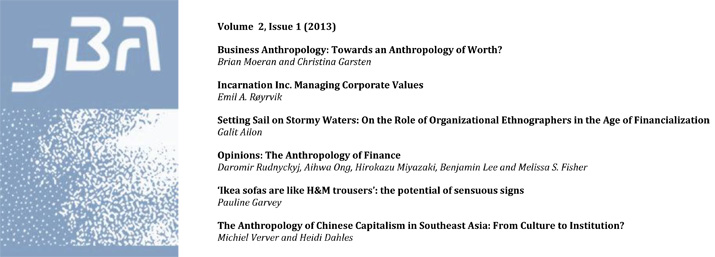The Anthropology of Chinese Capitalism in Southeast Asia: From Culture to Institution?
DOI:
https://doi.org/10.22439/jba.v2i1.4073Abstract
This article outlines the contours of the scholarly debate on ‘Chinese capitalism’ in Southeast Asia. This multidisciplinary domain is business- and entrepreneurship-oriented, and concerns the ethnic Chinese who have migrated from Southern China to Southeast Asia and have come to play a dominant role in the region’s economies over the centuries. The debate revolves around the competing assumptions that ethnic Chinese business success in Southeast Asia relies either on ethnic affiliation and shared cultural values, or on strategic deployment of resources, power relations and institutional co-optation. We distinguish four perspectives on ‘Chinese capitalism’, and argue that the concept of culture holds the debate hostage in the divide between essentialism and anti-essentialism. The promise of an ‘anthropology of Chinese capitalism’ resides in matters of perspective, therefore, rather than in the theoretical concept of culture itself. We advocate a liaison amoureuse between business anthropology and institutional theory.Downloads
Published
2013-06-11
Issue
Section
Articles
License
Authors who publish with this journal agree to the following terms:
- Authors retain copyright and grant the journal right of first publication with the work simultaneously licensed under a Creative Commons Attribution License that allows others to share the work with an acknowledgement of the work's authorship and initial publication in this journal.
- Authors are able to enter into separate, additional contractual arrangements for the non-exclusive distribution of the journal's published version of the work (e.g., post it to an institutional repository or publish it in a book), with an acknowledgement of its initial publication in this journal.
- Authors are permitted and encouraged to post their work online (e.g., in institutional repositories or on their website) prior to and during the submission process, as it can lead to productive exchanges, as well as earlier and greater citation of published work (See The Effect of Open Access).



